
Top 7 Best Logistics Softwares to Use in 2024
Logistics management has evolved dramatically over the years. In 2024, the need for optimized and scalable technology solutions is more crucial than ever. Businesses are turning to advanced logistic management technology to stay ahead in the competitive market. This blog explores the top seven logistics softwares for the year, focusing on features, advantages, and disadvantages of each.
What is Logistics Software?
Logistics management software refers to the digital tools and systems that streamline and optimize the movement of goods throughout the supply chain. This technology includes software solutions for inventory management, transportation management, and warehouse operations, enhancing efficiency and visibility.
By leveraging data analytics and automation, logistics software helps businesses reduce costs, improve delivery times, and enhance customer satisfaction. It enables better decision-making and coordination across various supply chain functions, ultimately contributing to a more agile and responsive logistics operation.
1. LogiNext Mile
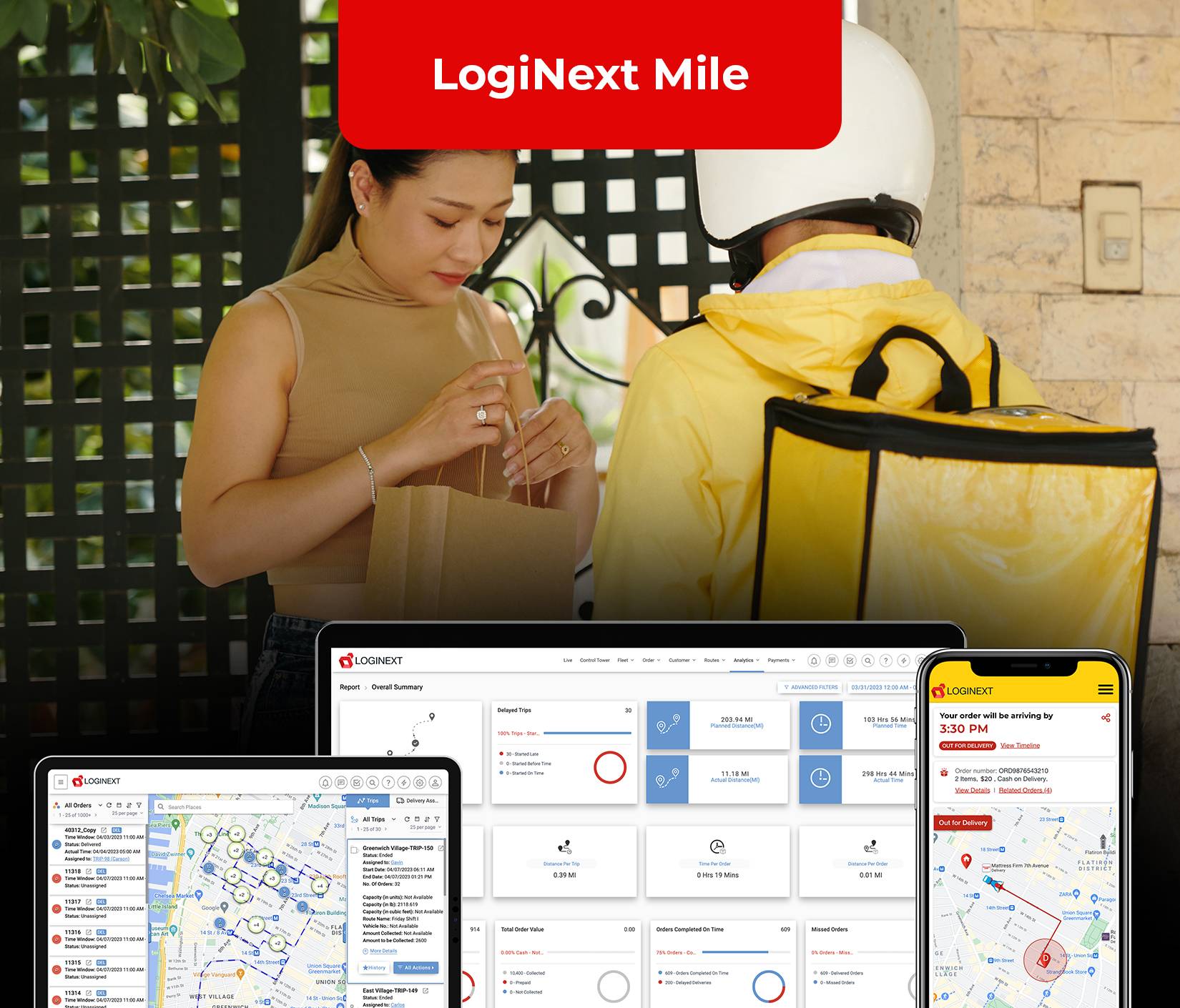
LogiNext is a leading cloud-based logistics software, automating logistics operations across over 200 countries. Revolutionizing first-mile, middle-mile, and last-mile deliveries, LogiNext stands out with unique features that drive customer satisfaction and repeat business.
Features:
1. Real-Time Tracking: LogiNext Mile offers real-time visibility over the entire logistics chain, including fleet and parcel movement.
2. AI and ML: Integrates AI-driven algorithms to enhance route optimization.
3. Geofencing: Provides automated alerts when vehicles enter or leave designated areas.
4. Analytics Dashboard: Offers comprehensive insights into logistics performance.
Advantages:
1. Efficient Route Planning: By using AI, LogiNext Mile can reduce travel time by up to 20%, helping businesses cut fuel costs.
2. Scalability: Works well for businesses of any size, making it flexible for growing companies.
3. Integration with Existing Systems: Easily integrates with major ERP and CRM systems.
4. All-in-one Solution: Manages everything from warehousing to delivery, making it ideal for complex logistics operations
5. User-Friendly Interface: Easy to navigate, reducing the training time for employees.
2. Logi-Sys
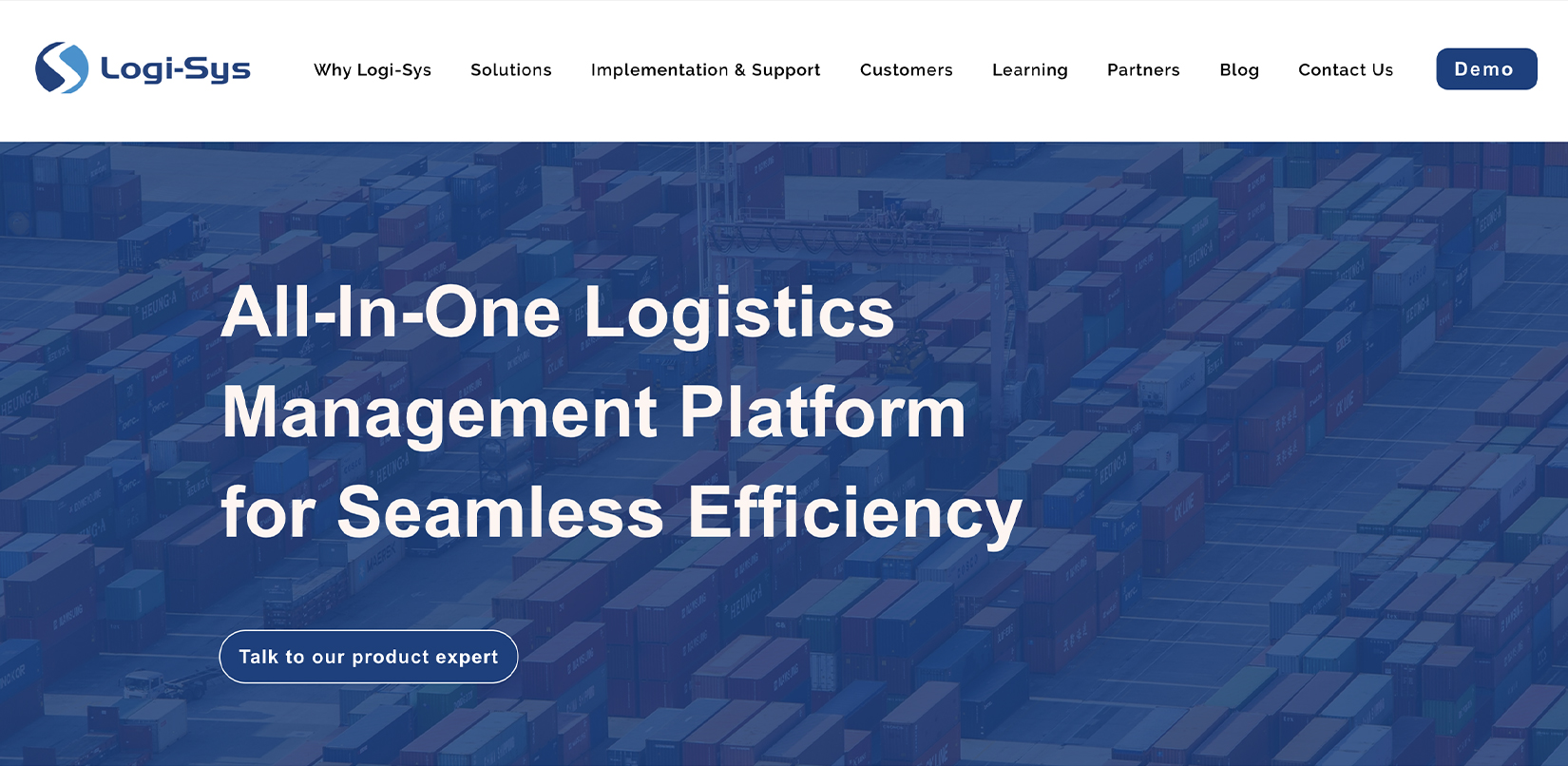
Logi-Sys is the global leading technology provider for Freight Forwarding, Logistics, and Supply Chain industry. Their comprehensive product portfolio includes superior technology solutions for the strategic and operational aspects of the logistics & freight forwarding business.
Features:
1. Comprehensive Logistics Management: Includes modules for freight forwarding, transport, and warehousing.
2. Customizable Workflows: Allows companies to tailor the software to meet their specific requirements.
3. Real-time Tracking and Reporting: Provides live data on cargo and fleet.
Advantages:
1. User-friendly Interface: Easy to navigate, reducing the training time for employees
2. Cloud-based: Accessible from anywhere, which is useful for remote teams.
Disadvantages:
1. Limited Support for Small Businesses: Best suited for medium to large enterprises, which may limit its effectiveness for smaller companies
2. Pricing: The cost can be a concern for businesses with limited budgets.
3. Fleetable
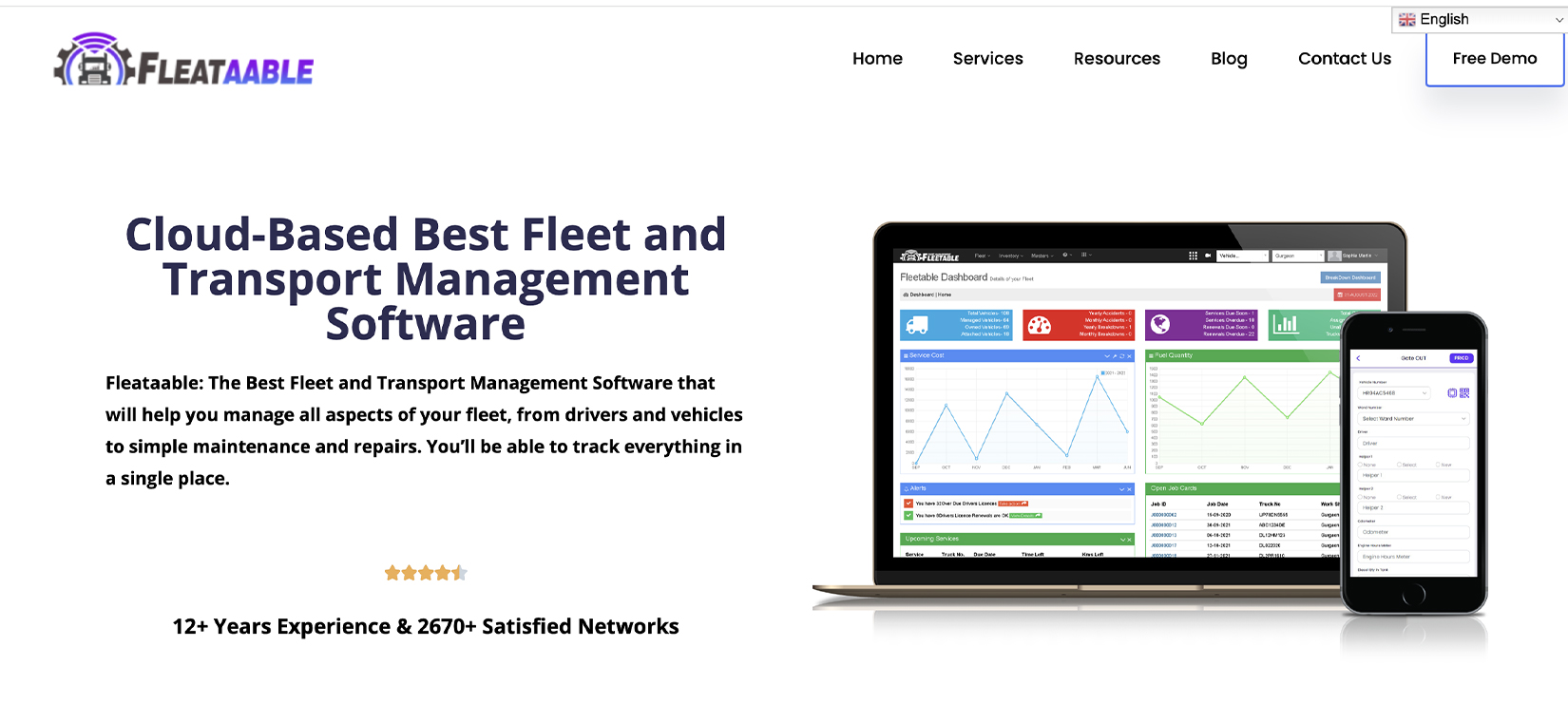
Fleetable is a cloud-based transport and fleet management solution that streamlines order booking, invoicing, reporting, and customer support. It offers role-based access, tire performance comparison, automated notifications, and support ticket tracking, enhancing efficiency across workshops and logistics operations
Features:
1. Fleet Management: Offers in-depth tracking, scheduling, and monitoring of vehicles.
2. Driver Performance Tracking: Tracks driver behavior to ensure safety and reduce fuel consumption.
3. Fuel Management: Monitors fuel usage, helping businesses optimize consumption.
Advantages:
1. Improved Safety: By tracking driver behavior, companies can reduce the risk of accidents by up to 12%.
2. Cost-Efficient: Fuel monitoring helps in reducing overall fuel consumption, potentially saving up to 8%.
3. Easy Integration: Can be integrated with other business systems.
Disadvantages:
1. Limited Features for Large-Scale Operations: It might not be as robust as other software when it comes to handling large fleets.
2. Basic Reporting: Lacks advanced analytics features, making it less useful for data-driven decisions.
4. Dispatch Track
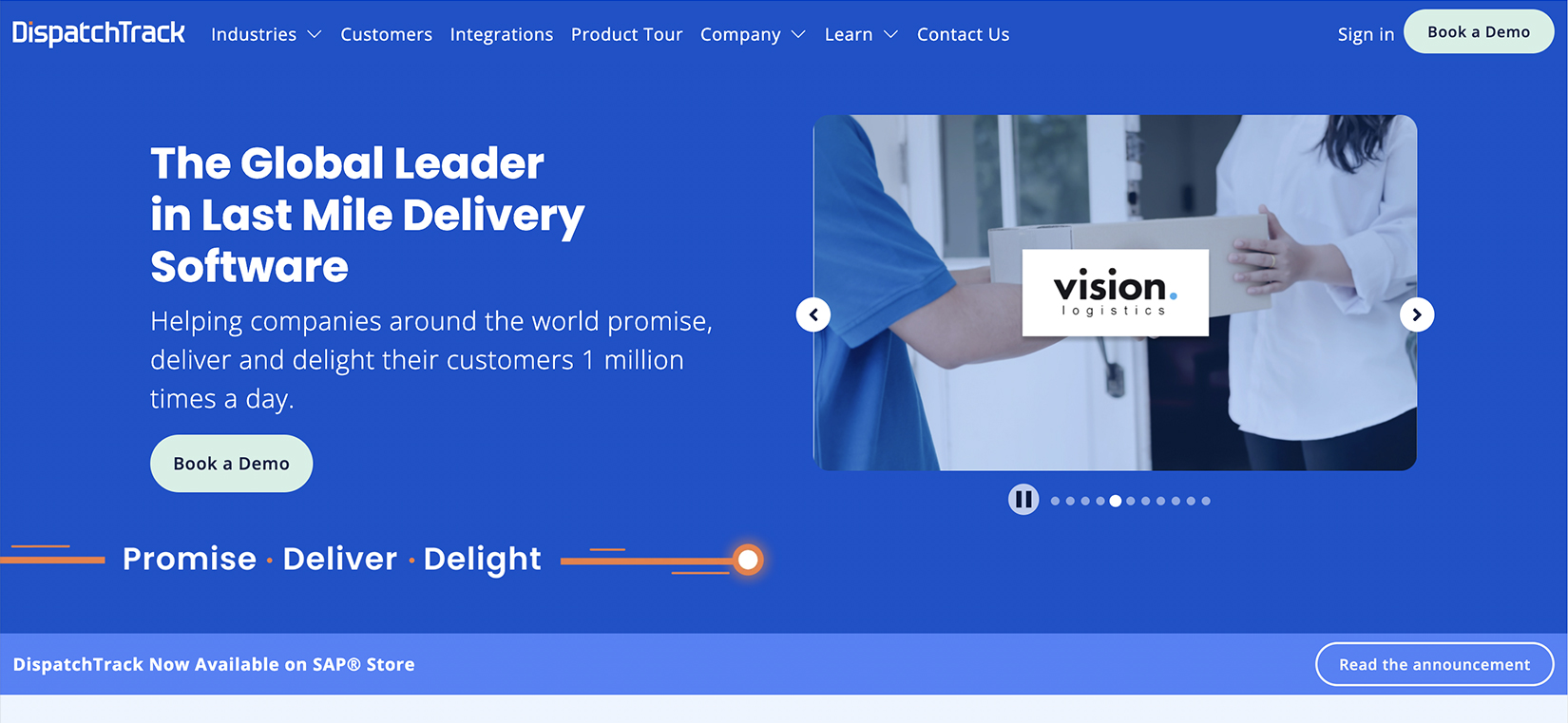
DispatchTrack is a leading delivery management solution, trusted by over 2,000 companies globally, including furniture retailers, food and beverage distributors, and 3PLs. Led by its founders, the company continues to solve complex delivery challenges for various industries worldwide.
Features:
1. Real-Time Visibility: Offers live tracking of deliveries and driver locations.
2. Automated Scheduling: Helps to automate delivery scheduling, reducing human errors.
3. Customer Communication: Sends automatic alerts to customers regarding delivery status.
Advantages:
1. Customer Satisfaction: By providing real-time updates, customer satisfaction increases, leading to fewer missed deliveries.
2. Time-Saving: Automated scheduling and dispatch can save up to 30% in administrative time.
3. Scalable: Works well for small businesses as well as larger enterprises.
Disadvantages:
1. Limited Customization: The platform may lack flexibility for businesses needing highly customized workflows.
2. Learning Curve: May take some time for users to fully adapt to the system.
5. Cargobase
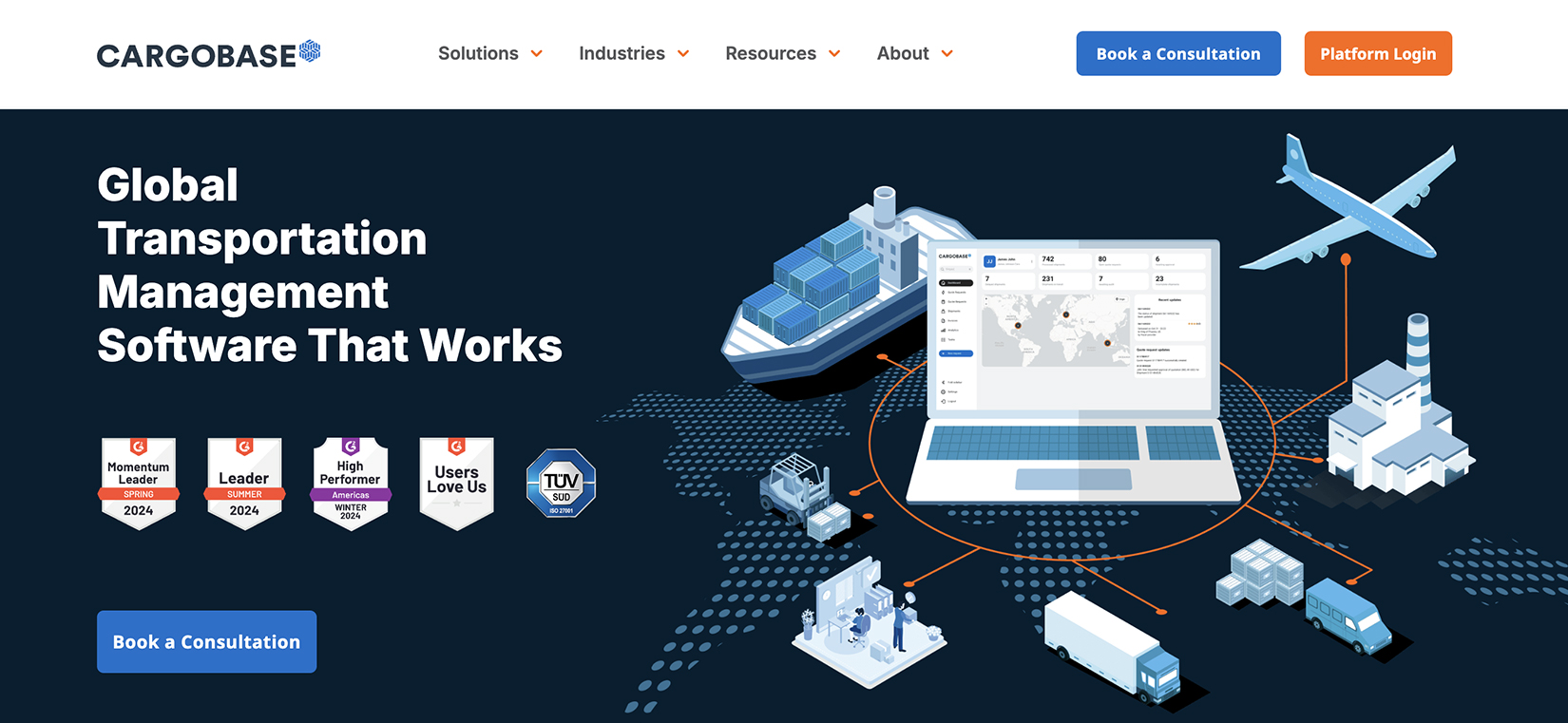
Headquartered in Singapore, Cargobase is a global logistics softwares company with offices in the USA, Mexico, Netherlands, and Malaysia. Its cloud-based Transportation Management System simplifies logistics for enterprise shippers across 50 countries, serving sectors like Automotive, Semiconductor, Oil & Gas, and Industrial Machinery.
Features:
1. Freight Procurement: Helps businesses procure freight at the best rates by connecting them with a global network of logistics providers
2. Freight Audit: Automates the auditing of freight invoices, ensuring accuracy.
3. Self-Service Platform: Allows users to manage shipments and generate reports without the need for third-party assistance.
Advantages:
1. Cost Savings: Businesses can reduce shipping costs by 10-15% through better procurement.
2. Improved Invoice Accuracy: Automated auditing minimizes discrepancies in freight billing.
3. Global Reach: Ideal for businesses involved in international logistics.
Disadvantages:
1. Complex for Small Businesses: May be too advanced for smaller enterprises with less complex logistics needs.
6. UROUTE
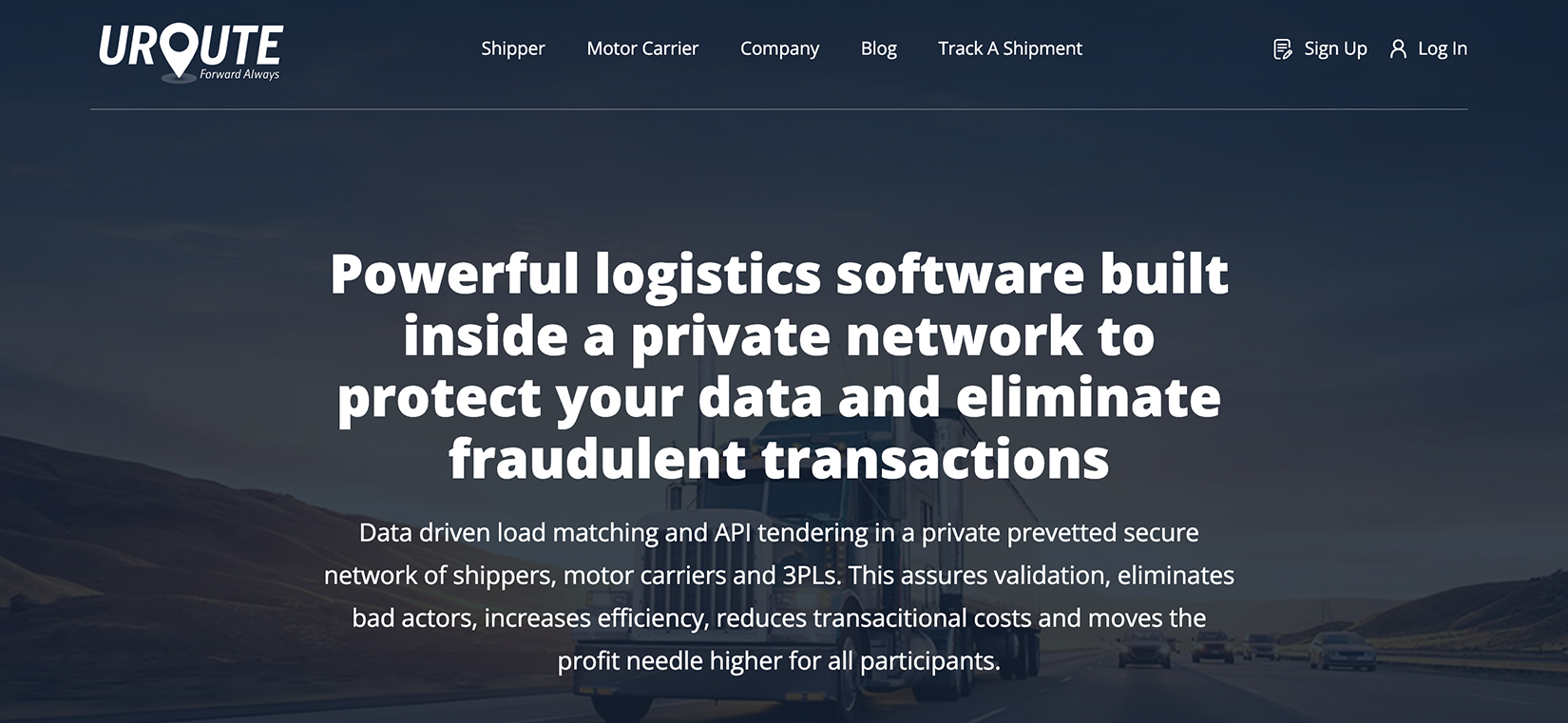
UROUTE provides a comprehensive suite of tools for e-carrier management, procurement, RFQ development, and analytics, all within an accessible interface. Its vendor connectivity enables quick decision-making, saving time and money. UROUTE empowers carriers to run all loads, recognizing their vital role in the logistics industry.
Features:
1. Freight Optimization: Reduces overall freight costs by optimizing routes and loads.
2. Shipment Visibility: Provides end-to-end visibility of shipments.
3. Carrier Management: Helps manage relationships with logistics carriers, improving communication and efficiency.
Advantages:
1. Improved Carrier Management: Streamlined communication with carriers leads to fewer delays and miscommunications.
2. Easy-to-Use Interface: Simplifies complex logistics operations with a user-friendly interface.
3. Optimized Freight: Reduces overall freight costs by optimizing routes and loads.
Disadvantages:
1. Limited Features for Global Logistics: UROUTE may not be as robust for international shipments.
2. Pricing Model: Can be expensive for small to mid-sized businesses.
7. Uber Freight
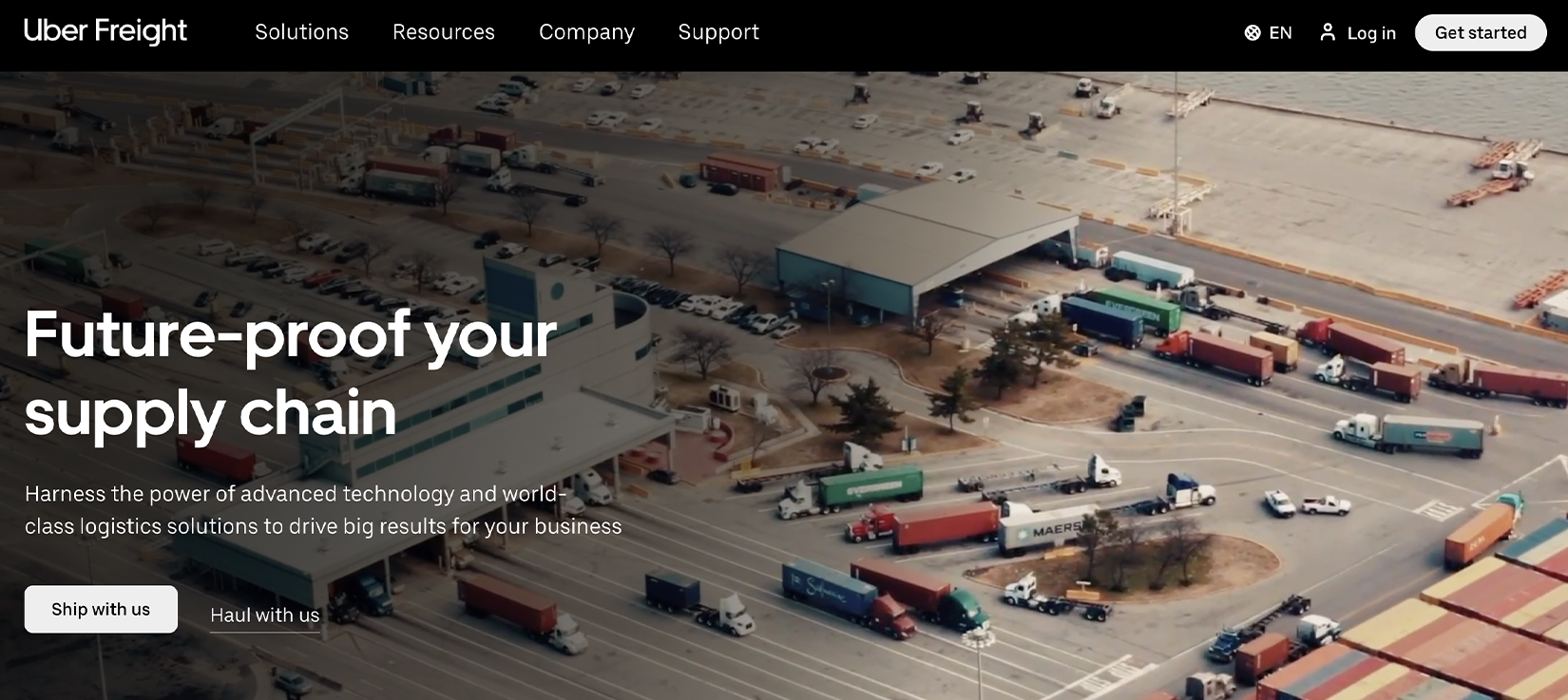
Uber Freight offers an end-to-end Relational Logistics suite to enhance supply chains and efficiently move goods. Combining technology, capacity, and expertise, its AI-Optimized Network provides insights for streamlined operations. With Dynamic Capacity and Expert Partnerships, Uber Freight delivers tailored solutions for optimal business performance.
Features:
1. On-Demand Freight: Allows businesses to connect with a large network of freight carriers on-demand.
2. Real-Time Tracking: Offers live tracking and updates on shipments.
3. Transparent Pricing: Provides clear, upfront pricing for freight services.
Advantages:
1. Flexibility: Ideal for businesses needing quick access to freight carriers without long-term contracts.
2. Transparency: Clear pricing helps businesses manage their budgets more effectively.
3. Wide Network: Uber Freight has a large carrier network, making it suitable for businesses of all sizes.
Disadvantages:
1. Lack of Advanced Features: Uber Freight may not offer as many advanced logistics management tools as other solutions.
2. Limited Support for Complex Logistics: Works best for straightforward shipping needs rather than complex, multi-leg shipments.
Conclusion
Choosing the right logistic software is vital for optimizing supply chain operations in 2024. Each of these seven logistics softwares offers unique features, benefits, and drawbacks, making them suitable for different types of businesses. Whether you need logistics softwares for fleet management, real-time tracking, or freight optimization, these solutions provide robust options for enhancing efficiency and reducing costs.
As logistics becomes more tech-driven, investing in the right tools is crucial for staying competitive in the global market. Click on the red button below and book a demo with LogiNext today!
47







@LogiNext